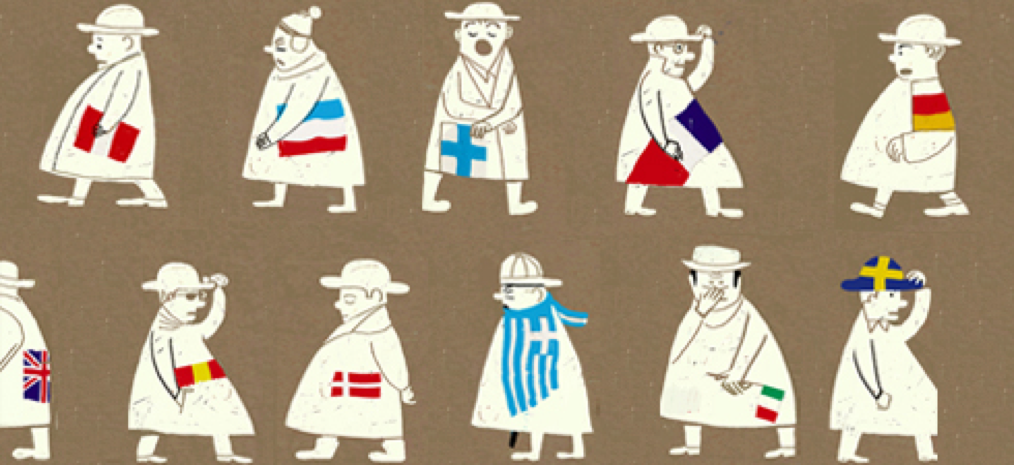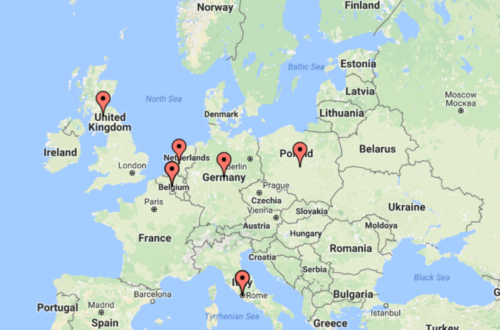
Identity Call for Papers
Call for Papers
“Constitutional Identity in the Age of Global Immigration”
The German Law Journal welcomes submissions for the forthcoming special issue:
Constitutional Identity in the Age of Global Immigration
Guest Editors
Professor Jürgen Bast
Justus-Liebig-Universität Gießen
Faculty of Law
Dr. Liav Orgad
WZB Berlin Social Science Center
“Global Citizenship” Research Group
Summary
Immigration, more than anything else, has revived the question of collective identity. Immigrants encourage nation-states to define themselves, as George Orwell noted: “It is only when you meet someone of a different culture from yourself that you begin to realize what your own beliefs really are.” Immigration policy echoes constitutional identity by mirroring not only the qualities that “we” value in others, but also by reflecting the essentials that define “us” as a nation. In a sense, drafting immigration requirements is a form of nation-building. Immigration and citizenship requirements—the requirements that “they” must fulfill in order to join “us”—define “our” way of living, form of thinking, and mode of good behavior. By investigating the requirements for becoming a citizen, we can learn a great deal about who “we” are as a nation.
Global migration yields political shifts of historical significance, profoundly shaking up world politics as recently manifested by the refugee crisis, the Brexit referendum, and throughout the US election. The migration crisis has enhanced the already-existing discussion on justifiable and unjustifiable attempts by states to protect their constitutional essentials by using selective immigration policy. How can liberal states welcome a large-scale of immigrants (and refugees) without fundamentally changing their constitutional heritage, forsaking their liberal traditions, or slipping into nationalism? This question is one of the greatest challenges facing liberalism today.
In recent years, liberal democracies have implemented a variety of immigration means, directing immigrants to embrace the customs and values of the host country. Global migration has produced moral panic and led to the adoption of proactive policies. Integration is mandatory, sanctioned, and test-based. It applies to all types of immigrants, including family members, and is more invasive than the classic requirements of familiarity with a country’s history and civics. In some states, the frontiers are moving beyond the territorial borders with the creation of a new concept—integration from abroad. Recent immigration laws in Western countries reveal that the invitation of liberal states to “be one of us” is often an invitation to be one of us “by being us.”
German Law Journal invites submissions to a Special Issue on the topic of “Constitutional Identity in the Age of Global Immigration.” The issue will discuss national, regional, and global challenges presented by international migration, as well as legal and ethical dilemmas that have arisen as a result of massive population movements. Specifically, the Special Issue will focus on:
1) Constitutional Identity: examining the theory and concept of constitutional identity—its normative sources, methods of identification, mechanisms of legal protection, etc.—and how states define collective identity in their constitutions;
2) Immigration Policy and Constitutional Design: exploring immigration and citizenship policies that are taken in order to foster certain forms of collective identities, and whether is it justified to impose restrictions on immigration and access to citizenship in order to protect different notions of constitutional identity,
3) Immigration and Europeanness: analyzing interrelations between EU jurisdiction and the sovereignty of Member States to define their constitutional structure. How should the EU govern the refugee/migrant crisis, bearing in mind both the protection of refugees/migrants and the constitutional identity of Member States?
4) Global Migration Crisis: investigating how should international law govern immigration in light of the challenge to states’ identity and self-determination? Should there be some responsibility-sharing mechanisms in international law?
Submission Procedure
We are interested in articles analyzing these and related issues under different approaches (international, comparative, theoretical), disciplines (law, philosophy, social psychology), and levels (national, regional, international). Interested scholars should send a CV and an abstract (up to 750 words) by February 15, 2017 to: lorgad@zedat.fu-berlin.de. The abstract will form the basis of an original article (8,000 to 10,000 words) to be submitted on June 15, 2017 (invitations to submit an article will be sent no later than March 1, 2017). Articles should be submitted according to the German Law Journal’s technical and stylistic requirements, its style guide and citation format (available here). Final articles are subject to a peer-review procedure.
Please direct inquiries in connection with the Special Issue to the editors, Professor Jurgen Bast (Jurgen.Bast@recht.uni-giessen.de) and Professor Liav Orgad (lorgad@zedat.fu-berlin.de).
Symposium Workshop
We plan to hold a workshop with selected authors at the Center for Global Constitutionalism, the WZB Berlin Social Science Center, in summer 2017. Authors who are interested to participate in the workshop will be responsible for their travel and lodging expenses. In exceptional cases of financial need, awards of up to 1,000 Euro will be made by the organizers to authors who clearly specify that need in their application.
About the Editors
Jürgen Bast is a Professor of Public Law and European Law at Justus Liebig University Giessen. Earlier he was a Full Professor of International and European Law at Radboud University Nijmegen, the Netherlands, and a Senior Research Fellow at the Max Planck Institute for Comparative Public Law and International Law in Heidelberg, Germany. His research interests are European and international migration law, refugee and citizenship studies, and European constitutional law, in particular the future of economic governance & the welfare state in Europe.
Liav Orgad is the Head of the Research Group “Global Citizenship Law” at the WZB Berlin Social Science Center, a Part-Time Professor at the Robert Schuman Centre for Advanced Studies, the European University Institute (EUI), and an Associate Professor at the School of Government, IDC Herzliya; and a member of the Global Young Academy. He is the author of The Cultural Defense of Nations: A Liberal Theory of Majority Rights (OUP, 2016). His research interests include constitutional theory, international law, citizenship theory, and global migration.






